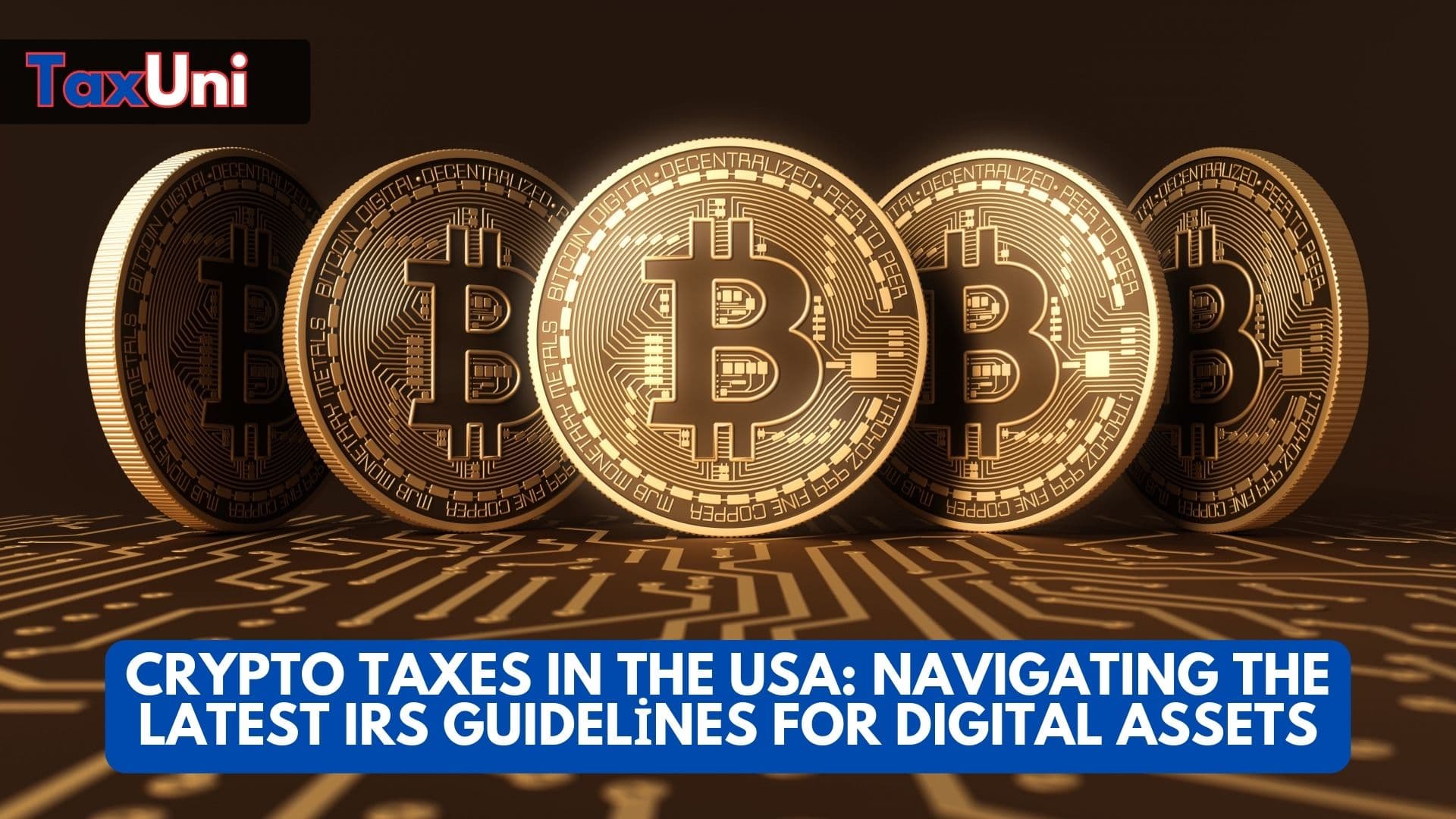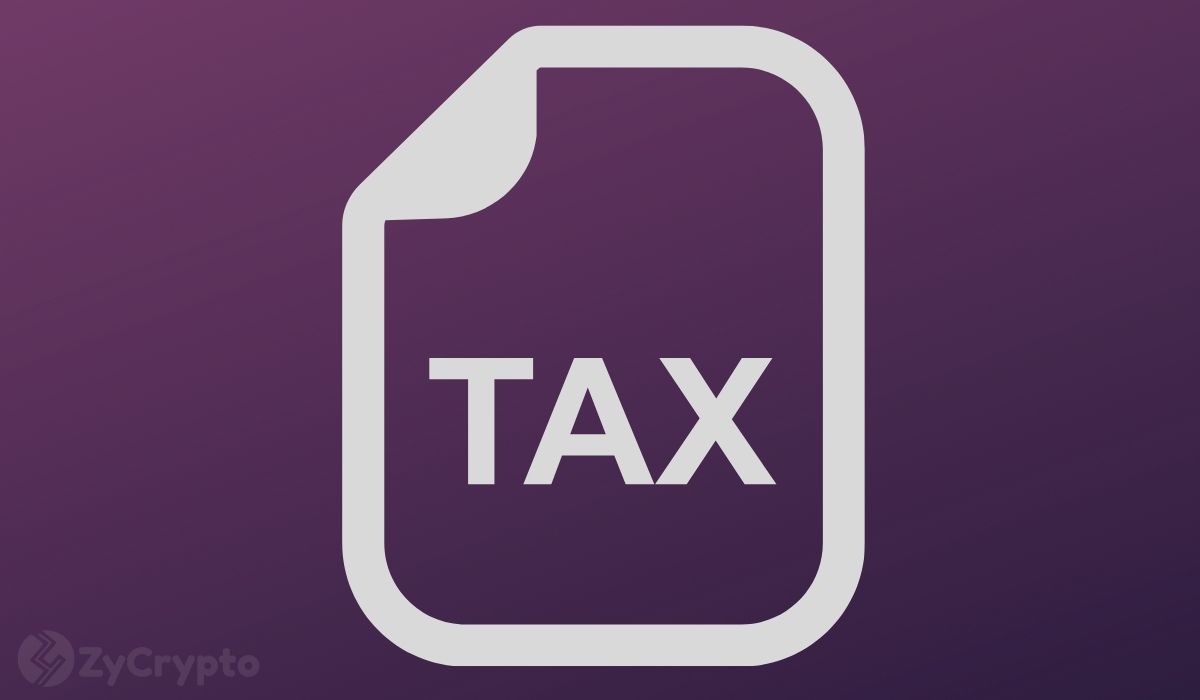Understanding The New IRS DeFi Broker Tax Regulations is crucial for anyone involved in Decentralized Finance (DeFi). These new rules significantly impact how DeFi brokers operate and report transactions, marking a major shift from previous cryptocurrency tax guidelines. We’ll break down the complexities of defining a “broker” in the decentralized world, explore reporting requirements, and examine the implications for both brokers and DeFi users.
Get ready to navigate this evolving regulatory landscape.
This guide aims to demystify the new IRS regulations, providing clear explanations and practical advice. We’ll cover key changes, reporting procedures, and potential legal ramifications, equipping you with the knowledge to understand and comply with these important tax laws. Whether you’re a DeFi broker, a platform developer, or simply a user, understanding these regulations is paramount for navigating the future of DeFi.
Introduction to the New IRS DeFi Broker Tax Regulations
The Internal Revenue Service (IRS) has recently issued new regulations concerning the taxation of Decentralized Finance (DeFi) activities, specifically targeting brokers operating within the DeFi ecosystem. These regulations represent a significant shift in how the IRS approaches the taxation of digital assets, moving beyond traditional centralized exchanges to encompass the decentralized and often pseudonymous nature of DeFi.
These changes primarily clarify the definition of a “broker” in the DeFi context, outlining the types of DeFi activities subject to reporting requirements, and establishing penalties for non-compliance. The historical context involves a gradual expansion of IRS guidance on cryptocurrency taxation, starting with general pronouncements on virtual currency and culminating in these targeted DeFi broker regulations. The key difference lies in the direct engagement with the decentralized structure of DeFi, a significant departure from previous, more exchange-centric approaches.
Key Changes Introduced by the New Regulations
The new regulations introduce clarity regarding the tax treatment of DeFi activities by explicitly defining what constitutes a DeFi broker and their reporting obligations. This aims to bring greater transparency and accountability to the DeFi space. The IRS is seeking to prevent tax evasion and ensure fair tax collection in the rapidly evolving DeFi market. Specific activities are detailed below, but the overall impact is a move towards greater regulatory oversight within DeFi.
DeFi Activities Covered Under the New Regulations
The regulations cover a wide range of DeFi activities performed by brokers. These include, but are not limited to, facilitating the exchange of cryptocurrencies on decentralized exchanges (DEXs), providing liquidity to automated market makers (AMMs), and offering lending and borrowing services on DeFi platforms. The crucial element is the facilitation of transactions, rather than direct participation in trading or lending itself.
This broad scope reflects the diverse range of services offered within the DeFi ecosystem.
Historical Overview of Previous IRS Guidelines
Prior to these specific DeFi regulations, the IRS addressed cryptocurrency taxation through more general guidance, often focusing on centralized exchanges and treating cryptocurrency like property for tax purposes. Notice 2014-21 provided initial guidance, while subsequent pronouncements clarified aspects like mining, staking, and airdrops. The new regulations represent a substantial refinement, explicitly addressing the unique characteristics and challenges presented by the decentralized nature of DeFi.
Defining “Broker” in the Context of Decentralized Finance (DeFi)
Defining a “broker” within the decentralized and pseudonymous environment of DeFi presents unique challenges. Unlike traditional brokerage models with clear entities and identifiable clients, DeFi often involves automated processes and anonymous participants. This requires a nuanced understanding of how the IRS applies the broker definition in this context.
Challenges in Defining a DeFi Broker
The decentralized and pseudonymous nature of DeFi makes identifying brokers difficult. Traditional brokers operate with centralized systems, readily identifiable clients, and clear transactional records. DeFi, however, operates on distributed ledgers with varying degrees of anonymity. The IRS needs to address this complexity in defining who qualifies as a broker within the DeFi space. This involves analyzing the role of various actors in facilitating transactions, even if their involvement is indirect or automated.
Comparison of Traditional and DeFi Brokerage Models
Traditional brokerage models involve centralized entities acting as intermediaries between buyers and sellers, maintaining detailed records of transactions. DeFi brokerage models, on the other hand, can be far more distributed and automated, with smart contracts and algorithms performing many of the functions traditionally handled by human brokers. This difference necessitates a revised approach to identifying and regulating brokers in the DeFi context, focusing on the functionality rather than the organizational structure.
IRS Criteria for Identifying a DeFi Broker

The IRS likely uses criteria focusing on the facilitation of transactions rather than a specific organizational structure. This might include analyzing the platform’s role in matching buyers and sellers, providing order execution services, or managing custodial functions, regardless of whether these functions are performed by a centralized entity or a decentralized algorithm. The focus is on the practical effect of the platform’s actions, rather than its legal structure.
Tax Reporting Requirements for DeFi Brokers
DeFi brokers are subject to specific reporting requirements, mirroring those applicable to traditional brokers. This involves submitting detailed information to the IRS regarding the transactions they facilitate. Failure to comply with these requirements carries significant penalties.
Sample Table of Reporting Requirements
| Information Reported | Reporting Frequency | Penalties for Non-Compliance |
|---|---|---|
| Transaction details (date, parties involved, amounts, assets traded) | Annually (likely similar to Form 1099-B reporting for traditional brokers) | Significant financial penalties, including back taxes, interest, and potential legal action. |
| User identification information (where available and permissible under applicable laws) | Annually | Same as above. |
| Total value of transactions facilitated | Annually | Same as above. |
Examples of Reportable Transactions
Examples of transactions requiring reporting include swaps, lending and borrowing activities, yield farming, and any other transaction facilitated by the DeFi broker. The focus is on the broker’s role in facilitating the transaction, not necessarily the specific type of DeFi activity involved.
Specific Forms for Reporting
The specific forms required for reporting these transactions are likely to be similar to those used for traditional brokerage reporting, potentially adapting existing forms or introducing new ones specifically for DeFi activities. This is still under development and clarification from the IRS is expected.
Implications for DeFi Users (Not Brokers)
While these regulations primarily target DeFi brokers, they indirectly impact DeFi users. The increased reporting requirements for brokers can lead to greater transparency regarding user transactions, potentially affecting their tax liabilities.
Impact on DeFi Users
The increased transparency resulting from broker reporting may make it easier for the IRS to identify and assess taxes on DeFi users’ gains and losses. Users need to accurately track their transactions to ensure they are properly reporting their income and expenses. This highlights the importance of meticulous record-keeping for all DeFi activities.
Tracking DeFi Transactions for Tax Purposes, Understanding The New IRS DeFi Broker Tax Regulations
- Maintain detailed records of all DeFi transactions, including dates, amounts, and assets involved.
- Use a spreadsheet or dedicated tax software to organize and track transactions.
- Reconcile transaction records with blockchain data where possible.
- Consult with a tax professional experienced in cryptocurrency taxation for guidance.
Legal and Compliance Considerations for DeFi Platforms

DeFi platforms must proactively address the new regulations to ensure compliance and avoid potential legal consequences. This requires a comprehensive understanding of the regulations and implementation of appropriate measures.
Checklist for Compliance
- Review the IRS regulations and determine whether the platform qualifies as a broker.
- Implement systems for tracking and reporting transactions as required.
- Develop procedures for collecting and verifying user information (where legally permissible).
- Consult with legal counsel specializing in cryptocurrency and tax law.
- Regularly update compliance procedures to adapt to evolving regulations.
Potential Legal Consequences for Non-Compliance
Failure to comply with the regulations can result in significant penalties, including substantial fines, back taxes, interest, and potential legal action. The severity of the penalties will depend on the nature and extent of the non-compliance.
Legal Challenges for Centralized vs. Decentralized Platforms

Centralized exchanges generally face fewer challenges in meeting reporting requirements due to their centralized structure and control over user data. Decentralized platforms, however, face greater challenges due to their distributed nature and the pseudonymous nature of many transactions. This necessitates innovative approaches to compliance.
Future Outlook and Potential Developments: Understanding The New IRS DeFi Broker Tax Regulations
The DeFi landscape is constantly evolving, and future regulatory developments are likely. This requires ongoing adaptation and preparedness from both platforms and users.
Navigating the new IRS DeFi Broker tax regulations can be tricky, especially with all the recent changes. Need a break from tax headaches? Check out this juicy gossip: Is Dua Lipa Engaged to Callum Turner? A New Pics Are Making Her. Okay, back to business – remember to keep meticulous records of your DeFi transactions to avoid any IRS surprises later!
Hypothetical Future Regulatory Development
A potential future development could involve the implementation of a standardized reporting system for DeFi transactions, similar to existing systems for traditional financial instruments. This could streamline reporting processes and reduce the burden on both brokers and users, while simultaneously enhancing tax compliance. This might involve collaborations between regulatory bodies and DeFi developers to establish interoperable reporting standards.
Adaptation of Current Regulations
The current regulations might adapt to incorporate advancements in DeFi technology, such as the increasing use of privacy-enhancing technologies. This could involve adjustments to reporting requirements to balance the need for tax compliance with user privacy concerns. Finding a balance between these two competing interests will be crucial for future regulatory developments.
Challenges in Enforcing Regulations in a Global and Decentralized Environment
Enforcing these regulations in a global and decentralized environment presents significant challenges. The lack of centralized control over DeFi platforms and the jurisdictional complexities associated with cross-border transactions make enforcement difficult. International cooperation and the development of robust cross-border regulatory frameworks will be essential for effective enforcement.
Final Conclusion
The new IRS DeFi Broker Tax Regulations represent a significant step in bringing the decentralized world of finance under a clearer regulatory framework. While challenges remain in defining and enforcing these rules within a global, decentralized ecosystem, understanding the key changes, reporting requirements, and potential implications is crucial for all stakeholders. By staying informed and proactive, individuals and platforms can navigate this evolving landscape and ensure compliance.
Navigating the new IRS DeFi Broker tax regulations can be tricky, especially with all the recent changes. Need a break from complex tax laws? Check out this juicy gossip: Is Dua Lipa Engaged to Callum Turner? A New Pics Are Making Her. Okay, back to taxes: remember to keep meticulous records of your DeFi transactions to avoid penalties.
Frequently Asked Questions
What if I’m a small DeFi platform with limited transactions? Do I still need to comply?
Yes, compliance applies regardless of platform size. Even small platforms need to understand their reporting obligations to avoid penalties.
How does the IRS define “staking rewards” under these regulations?
The IRS considers staking rewards as taxable income, similar to interest earned. They should be reported as ordinary income.
What are the penalties for non-compliance with these regulations?
Penalties can range from financial fines to criminal prosecution, depending on the severity and nature of the non-compliance.
Navigating the new IRS DeFi Broker tax regulations can be tricky, especially with all the new reporting requirements. Need a break from tax headaches? Check out the ticket details for the upcoming Liverpool v Lille Champions League match at Liverpool v Lille: Champions League ticket details to plan your escape. Then, get back to understanding those DeFi tax implications before the deadline!
Are there any resources available to help me understand and comply with these regulations?
The IRS website provides some guidance, and consulting a tax professional specializing in cryptocurrency is highly recommended.